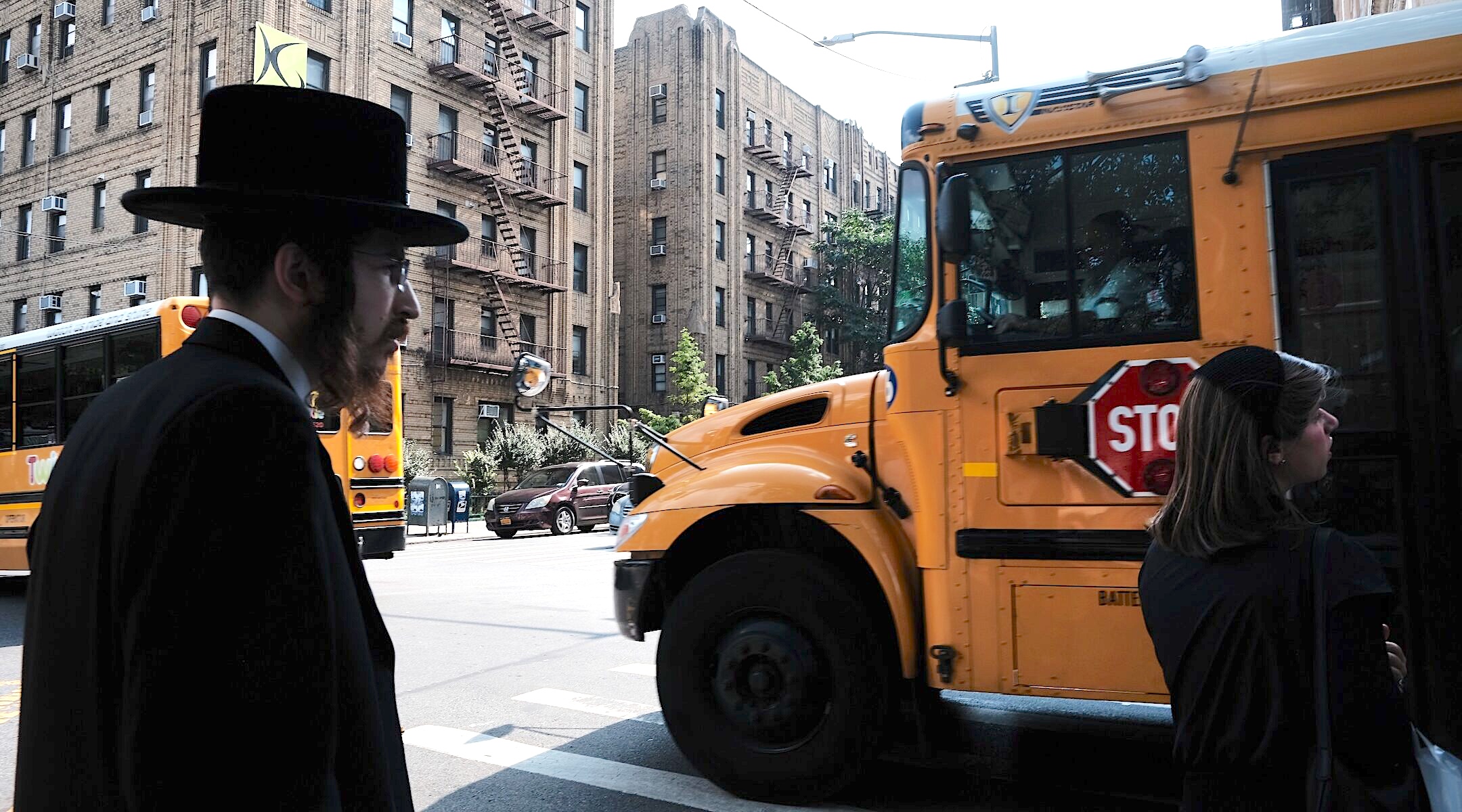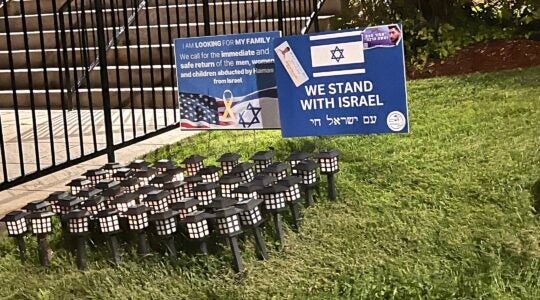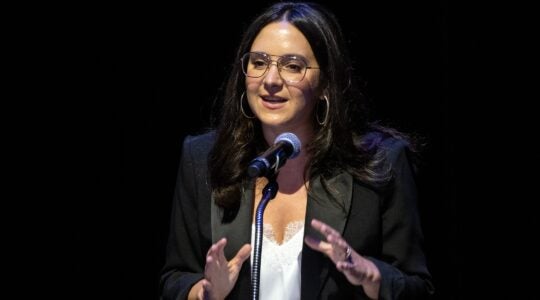Families sending their children to yeshivas and other Jewish schools nationwide would be eligible for tuition assistance through a federal tax credit proposed in federal budget legislation.
The proposal — which would create scholarships of up to $5,000 per student — marks the farthest that proponents of school vouchers have ever gotten toward expanding school vouchers nationwide.
The voucher program’s inclusion in Trump’s budget reconciliation bill was hailed as “historic” by Agudath Israel, a national Orthodox Jewish umbrella organization involved in lobbying efforts alongside other school choice advocates. The group brought 200 people to Washington, D.C., last month to press lawmakers on the issue.
“By prioritizing scholarships among the many competing tax policies vying for inclusion, the House leadership demonstrated why school choice is spreading across the nation,” said Rabbi Avi Schnall, Agudath Israel’s director of federal education affairs. “Parents want to choose the best educational setting for their child.”
The Orthodox magazine Mishpacha recently called the voucher proposal a “financial lifeline” that would “transform the tuition landscape” for families whose children attend yeshiva and other nonpublic schools.
Twenty states offer some form of tuition assistance for private schools, but most state programs are small. New York, home to the largest number of Jewish students, does not offer vouchers or tuition tax credits at all. A federal program would introduce school vouchers from coast to coast, even in Democratic-leaning states where lawmakers and voters have opposed such arrangements.
The proposal to create a federal school voucher program is tucked into a broader budget bill that seeks to extend President Donald Trump’s 2017 tax cuts and add funding for border security, while cutting from Medicaid and other services. Republicans on the House Ways and Means Committee voted on Sunday to advance the bill, a key step toward consideration by the full chamber and eventually the Senate, both of which have a Republican majority.
The proposal has advanced over the staunch opposition of dozens of liberal religious groups. Earlier this month, the Union for Reform Judaism, representing American Jewry’s largest denomination, and the National Council of Jewish Women were among the signatories of a letter criticizing the federal school vouchers plan as a threat to religious liberty and a benefit to the wealthy.
“The responsibility for religious education belongs to families, houses of worship, and other religious institutions — we do not need or want the government to be involved,” the letter said.
The program would set aside $5 billion a year for a new kind of tax credit. Private citizens would get $1 off their tax bill for every $1 they donate to special charities known as Scholarship Granting Organizations, or SGOs, capped at 10% of the donor’s income.
The SGOs would grant scholarships of up to $5,000 per child, allowing at least a million students to benefit. Nearly 5 million children in the United States currently attend private schools, according to federal figures. Of those, an estimated 350,000 are Orthodox, Rabbi Chaim Shimon Neuberger, the national director of the advocacy group Torah Umesorah, told Mishpacha magazine.
Tens of thousands of children also attend non-Orthodox Jewish day schools, according to Prizmah: Center for Jewish Day Schools. Tuition at those schools tends to be much higher than at Orthodox yeshivas.
Families that earn up to 300% of the median income in the area would qualify, which means that all but the wealthiest families can benefit. Agudah is pushing to remove the eligibility requirement entirely.
The availability of scholarships would be driven by donations, giving rise to enthusiasm in the Orthodox world, where internal charitable giving is already high.
“If every family and business in our community, whether or not they have children in our schools, donates the maximum allowed contribution, it would generate enough funds to significantly lower tuition and in some cases, allow students to attend for free,” Rabbi A.D. Motzen, Agudah’s national director of government affairs, told Mishpacha.
The advance of federal school vouchers in Congress is one of several recent developments that are potentially transforming the legal and financial landscape for Orthodox education. New York State, home to a large share of the country’s yeshivas, recently moved to weaken oversight of nonpublic schools. And the Supreme Court is slated to deliver a ruling that could pave the way for the establishment of publicly funded religious charter schools.
JTA has documented Jewish history in real-time for over a century. Keep our journalism strong by joining us in supporting independent, award-winning reporting.






